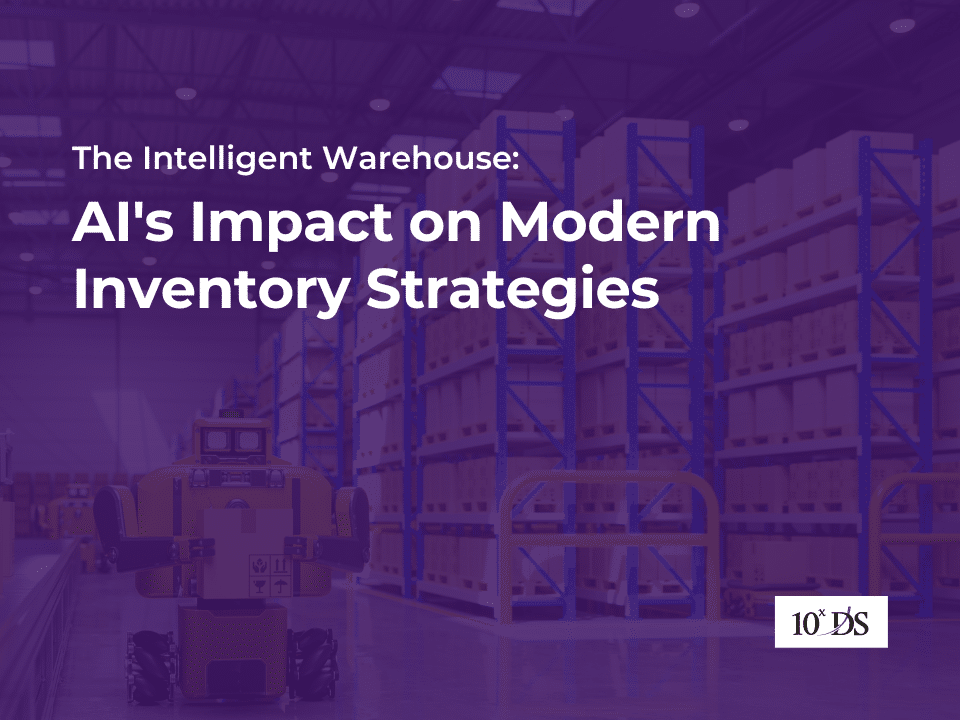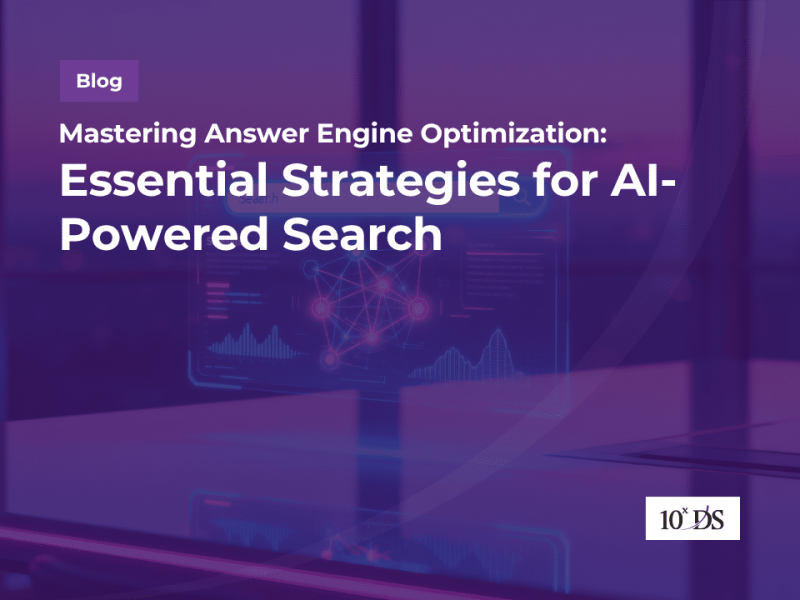
The Intelligent Warehouse: AI’s Impact on Modern Inventory Strategies
At the heart of operational efficiency and financial success, effective inventory management ensures that a company maintains an optimal balance between supply and demand. By navigating the delicate equilibrium of having enough stock to meet customer needs without succumbing to the burdens of excess inventory, needs strategic orchestration of a business’s goods and materials, encompassing the acquisition, storage, tracking, and fulfilment of products. In a dynamic business landscape, where market fluctuations are the norm, mastering the art of inventory management becomes a linchpin for companies seeking resilience, agility, and a competitive edge and it helps in:
- Cost Control: Minimizes holding and carrying costs by avoiding excess inventory and stockouts.
- Customer Satisfaction: Ensures product availability, reducing delays in order fulfilment and enhancing customer satisfaction.
- Cash Flow Management: Frees up capital by optimizing inventory, improving overall cash flow for reinvestment.
- Operational Efficiency: Streamlines order fulfilment processes, reducing disruptions in the supply chain.
- Demand Planning and Forecasting: Aligns inventory levels with expected sales, minimizing the risk of stockouts or excess inventory.
- Supplier Relationships: Strengthens relationships by providing accurate demand information, facilitating better negotiations.
- Waste Reduction: Minimizes the risk of obsolete or perishable goods, reducing waste and improving sustainability.
- Strategic Decision-Making: Provides data-driven insights for optimizing product offerings, pricing, and adapting to market changes.
This multifaceted discipline is not merely about counting products on shelves but involves leveraging advanced technologies, predictive analytics, and sound logistics strategies to create a seamless and responsive supply chain. Artificial Intelligence (AI) has emerged as a transformative force in revolutionizing the landscape of inventory management. Gone are the days of static spreadsheets and manual processes; AI brings a dynamic and predictive element to the realm of tracking, ordering, and optimizing inventory. By harnessing the power of advanced algorithms, machine learning, and data analytics, AI enables businesses to forecast demand with unprecedented accuracy, automate routine tasks, and make real-time decisions that enhance overall operational efficiency. From demand forecasting to warehouse optimization and risk mitigation, AI injects a new level of intelligence into inventory management, empowering companies to adapt swiftly to market changes, reduce costs, and elevate their competitive edge in an ever-evolving business environment.
Demand Forecasting
In the realm of demand forecasting, AI plays a pivotal role by harnessing its ability to process vast amounts of historical data, market trends, and external factors. Through sophisticated algorithms, AI predicts future demand patterns with a level of accuracy unattainable through traditional methods. For instance, in the retail sector, AI algorithms analyse past sales data and consumer behaviour to anticipate which products will experience increased demand, enabling retailers to adjust inventory levels accordingly and mitigate the risks of stockouts or overstock situations.
Ordering and Reordering
AI revolutionizes the ordering and reordering process by automating and optimizing the entire supply chain workflow. Through continuous analysis of real-time data on product demand, inventory levels, and supplier performance, AI algorithms set reorder points, calculate optimal order quantities, and schedule replenishments. In the e-commerce industry, this translates into automated order placement with suppliers based on dynamic and current demand patterns, reducing the need for manual intervention and improving the overall efficiency of the ordering process.
Inventory Optimization
Inventory optimization involves achieving a delicate balance between maintaining sufficient stock levels to meet demand and minimizing excess inventory costs. AI contributes by employing advanced algorithms to factor in carrying costs, demand variability, and stockout risks. Companies in manufacturing, for instance, utilize AI to dynamically adjust their inventory levels, ensuring that raw materials are readily available for production without incurring unnecessary holding costs or risking shortages that could disrupt operations.
Supplier Relationship Management
AI transforms supplier relationship management by leveraging data analytics to assess supplier performance, market conditions, and historical data. By evaluating these factors, AI helps businesses identify the most reliable and cost-effective suppliers, thereby optimizing the supply chain. This is particularly critical in industries where a stable and efficient supply chain is paramount, and AI’s insights enable companies to make informed decisions about supplier selection, negotiation, and collaboration.
Warehouse Management
Warehouse management sees a profound impact from AI through the optimization of layout, picking routes, and real-time tracking of inventory. AI algorithms analyse data to design efficient warehouse layouts, streamline picking processes, and provide real-time visibility into inventory movements. In logistics, companies utilize AI to enhance warehouse efficiency, reduce errors in picking and packing, and ultimately accelerate the fulfilment of orders, leading to improved customer satisfaction and operational effectiveness.
Dynamic Pricing
AI transforms pricing strategies through dynamic pricing, where algorithms analyse market conditions, competitor pricing, and customer behaviour to adjust prices in real-time. Airlines, for example, use AI to optimize ticket prices based on factors like demand, time until departure, and competitive offerings. This dynamic approach allows companies to maximize revenue, respond swiftly to market changes, and remain competitive, showcasing the adaptability and responsiveness that AI brings to pricing decisions.
Returns Management
AI is instrumental in handling returns efficiently by predicting and analysing return patterns. Algorithms can identify reasons for returns, categorize returned items, and recommend appropriate actions such as restocking or discounting. In the retail sector, this application of AI minimizes the impact of returns on inventory and helps companies implement effective strategies for managing returned goods, contributing to a more streamlined and cost-effective returns process.
Risk Management
AI plays a crucial role in risk management within inventory processes by assessing and predicting various supply chain risks. Whether it’s disruptions in transportation, natural disasters, or geopolitical events, AI algorithms analyse data to proactively identify potential risks and suggest mitigation strategies. This proactive approach enhances the resilience and adaptability of the supply chain, allowing businesses to navigate uncertainties more effectively and maintain a reliable flow of inventory.
The table below explain the AI application employed successfully by global companies:
|
Area |
Company |
Application |
Benefits |
|
Demand forecasting |
Amazon |
Analyses vast amounts of customer data, including purchase history and browsing behaviour, to predict future demand for specific products. |
This enables the company to optimize inventory levels, reduce stocking errors, and enhance overall customer satisfaction by ensuring that popular items are consistently in stock and ready for prompt delivery |
|
Ordering and Reordering |
Alibaba |
Utilizes AI algorithms to automate the replenishment of goods based on real-time demand and inventory data. |
This reduces the likelihood of stockouts and streamlines the supply chain by automating the ordering process, allowing company to efficiently manage a vast array of products to meet the dynamic demands of its global customer base. |
|
Inventory Optimization |
Siemens
|
Dynamically adjusts inventory levels by integrating AI algorithms into its supply chain management, based on factors such as production schedules, demand fluctuations, and raw material availability. |
This allows the company to strike an optimal balance between maintaining sufficient stock for production and minimizing holding costs, contributing to operational efficiency and cost savings. |
|
Supplier Relationship Management |
IBM
|
By leveraging AI analytics, IBM assesses supplier performance, market trends, and risk factors to optimize its supplier relationships. |
This enables company to make informed decisions about supplier selection, negotiate favourable terms, and ensure a resilient and efficient supply chain. |
|
Warehouse Management |
DHL
|
Utilizes AI algorithms for route optimization, warehouse layout design, and real-time inventory tracking. |
This implementation improves overall warehouse efficiency, reduces errors in order fulfilment, and ensures timely delivery of packages. |
|
Dynamic pricing |
Delta Air Lines
|
Utilizes AI algorithms to analyse factors such as demand, seat availability, and competitor pricing in real-time |
This enables them to adjust ticket prices dynamically, optimizing revenue and maximizing profits. |
|
Returns Management |
Zara
|
Zara employs AI algorithms to analyse data on return patterns, customer feedback, and product conditions for making data-driven decisions on restocking, discounting, or improving product quality. |
This proactive approach to returns management contributes to company’s reputation for agility and responsiveness in the fast-paced fashion industry. |
|
Risk Management |
IBM
|
IBM utilizes AI algorithms to analyse various risk factors, including geopolitical events, natural disasters, and market fluctuations. |
By proactively identifying potential risks, company implement mitigation strategies, ensuring the continuity of its supply chain operations |
In conclusion, the integration of Artificial Intelligence (AI) into inventory management heralds a new era of efficiency, precision, and adaptability for businesses. The advanced capabilities of AI, including predictive analytics and machine learning algorithms, empower companies to move beyond traditional inventory practices. AI not only revolutionizes demand forecasting, order optimization, and warehouse management but also enables real-time decision-making in response to market dynamics. The result is a supply chain that is not just reactive but anticipatory, minimizing costs, reducing errors, and enhancing overall operational performance. As businesses navigate the complexities of a rapidly evolving market, the strategic implementation of AI in inventory management emerges as a cornerstone for success, offering a competitive edge that is vital for sustained growth and resilience in the face of change.
Talk to our Experts to learn more


